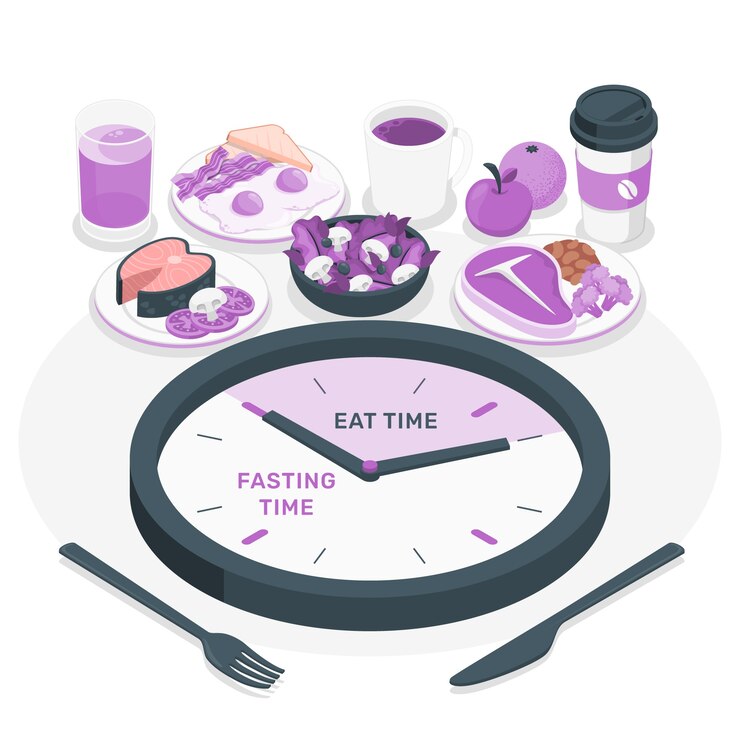
Unlocking the Potential of Intermittent Fasting: A Pathway to Health and Vitality
Intermittent fasting (IF) has surged in popularity as more people seek effective ways to improve health and manage weight. This dietary approach revolves around alternating periods of eating and fasting, presenting a promising pathway to enhanced well-being and longevity.
Understanding Intermittent Fasting
Intermittent fasting isn’t just another diet trend; it’s a structured eating pattern that cycles between periods of eating and fasting. Unlike traditional diets that focus on what to eat, IF focuses on when to eat. This method doesn’t restrict food choices but rather manipulates the timing of meals. By doing so, it harnesses the body’s natural metabolic processes for optimal health.
How Intermittent Fasting Works
During fasting periods, the body exhausts its glycogen stores and switches to fat metabolism for energy. This metabolic shift triggers several beneficial changes, including increased insulin sensitivity, cellular repair mechanisms, and hormone regulation. These processes collectively contribute to weight loss, improved cognitive function, and even longevity.
Types of Intermittent Fasting
There are various IF methods, each offering flexibility to suit individual lifestyles. The 16/8 method involves fasting for 16 hours and eating within an 8-hour window daily. Alternatively, the 5:2 approach restricts calorie intake to 500-600 calories on two non-consecutive days each week, while eating normally on the other five days.
Health Benefits of Intermittent Fasting
Beyond weight management, intermittent fasting boasts a spectrum of health benefits supported by scientific research. Studies suggest it may reduce inflammation, lower cholesterol levels, and enhance heart health. Moreover, intermittent fasting has shown promise in reducing the risk of chronic diseases such as type 2 diabetes and certain cancers.
Challenges and Considerations
While intermittent fasting offers compelling benefits, it may not be suitable for everyone. Individuals with certain medical conditions, pregnant or breastfeeding women, and those with a history of eating disorders should approach IF with caution. Additionally, some people may experience initial challenges adjusting to fasting periods, such as hunger or fatigue, which typically subside as the body adapts.
Getting Started with Intermittent Fasting
Embarking on an intermittent fasting journey requires thoughtful planning and gradual implementation. Begin by choosing a fasting method that aligns with your lifestyle and health goals. It’s essential to stay hydrated and nourished during eating periods, focusing on nutrient-dense foods to support overall well-being.
Tips for Success
To maximize the benefits of intermittent fasting, incorporate these practical tips:
- Stay Hydrated: Drink plenty of water throughout the day to support digestion and cellular function.
- Monitor Nutrient Intake: Ensure your meals during eating windows are balanced and rich in essential nutrients.
- Listen to Your Body: Pay attention to hunger cues and adjust your fasting schedule as needed to maintain comfort and sustainability.
The Future of Intermittent Fasting
As research continues to unveil the multifaceted benefits of intermittent fasting, its integration into mainstream health practices is poised to grow. With ongoing studies exploring its impact on aging, brain health, and disease prevention, IF holds promise as a holistic approach to optimizing healthspan and quality of life.
Conclusion
Intermittent fasting represents a paradigm shift in dietary strategies, offering not just weight management but a holistic approach to health enhancement. By harnessing the body’s innate metabolic processes, IF empowers individuals to achieve sustainable health benefits. Whether you’re looking to shed pounds, boost energy levels, or enhance longevity, intermittent fasting presents a compelling avenue worth exploring under informed guidance.
